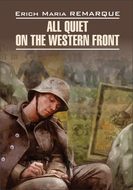Kitabı oku: «Останься, дочь / Stay, Daughter», sayfa 2
Nestling in folds of white voile were dozens of glass bangles: red, blue, green, yellow, even gold; some multicolored, some striped diagonally over the narrow bands, others with shiny specks inside the glass. They glinted in the light. With just two bangles on her wrist, a girl could make a delicate, tinkling sound.
Marmee turned to her mother.
Wappumma shook her head. “The glass will break when you do your housework; and where else could you wear them? Where do you go child, that anyone would see?”
Marmee bit her lip and said nothing.
But Wappah walked up to Majeed Nana’s box and picked up a pair of bangles. He said if it made his sister happy, he would buy them for her.
The next morning, after her son had left the house, the widowed mother placed the crossbar against the front door and closed it shut.
Chapter II
Let not the believers take the disbelievers as Friends.
The Quran, 3:28
Because it was the custom among our people that when a man married he moved into his wife’s home, our family lived in the Galle Fort, where Umma had been born.
After some years as a jeweler’s apprentice, Wappah had struck out on his own and become wealthy enough to be considered an eligible bridegroom for a daughter of the prestigious Cassim clan, to which Umma belonged. Marriages like that took place when a Fort family could find no one amongst themselves for a girl who was unmarried and growing old. No one ever explained why Umma, who everyone considered beautiful and elegant, had not been able to marry earlier. I couldn’t really ask, that being another unnecessary question, but I suspect it had something to do with the decline of family fortunes – the decline that often happened to the subsequent generations of wealthy families. Where no big dowries could be offered, people who were otherwise keen to be set apart from those who lived in the villages allowed themselves to consider an up-and-coming bachelor from a place like Shollai.
The Galle Fort, this place where I grew up, was like no other. Or so the Ulemas, the religious scholars of Islam, must have concluded with great consternation. They insisted the faithful keep away from the infidel; inside this cramped citadel, no one could keep very much away from anybody else.
Perched on a cliff that jutted out into the sea, the fortress was a small outcrop of land surrounded on three sides by water. Inside, within an area that was less than a tenth of a square mile, lived hundreds of people. With roofs and gutters touching, and only a common wall in between, their houses jostled against each other. To talk to a neighbor, a person stood in his courtyard and shouted over a wall, or sat on the steps of the front verandah and pitched his voice across.
The back doors opened out to narrow alleyways, giving cover to Muslim women who wanted to visit their relatives without walking the streets. They also opened out to minuscule pieces of land that families used for raising livestock. Here, a neighbor’s goat wandered over to chew on sprigs of jak leaves brought from the countryside, and a neighbor’s ducks waddled in to splash in mud puddles left behind by monsoon rains. The smells from adjoining kitchens mingled and wafted in the breeze and into this mix was added, every day, another odor, when the bucket man from the municipality opened a latched door at the back, and emptied into his handcart the brimming pails that he pulled out from the latrines.
My mother’s uncle, Zain Magdon insisted that the first Muslim allowed to live inside this citadel was one of our own ancestors. Nearly two centuries ago, his great-great grandmother, Raheema Umma, a widow with seven daughters (all of them very beautiful, Zain Marma also insisted), had lived in Magalle, a small town a few miles south of the Fort. Some hooligans who knew about the pretty girls began to harass the family, and one night, the notorious bandit Kitchel, who worked with the fearsome robber Gurubaldi (so Zain Marma’s story went), broke into the house to abduct them. Though the cries of the women brought out the neighbors and the widow and her daughters were saved, the next morning, the terrified mother appealed to the colonial authorities to give her a safe place to live.
At the time, there was a Dutch law that restricted Muslims – whom the colonizers called Moors – to their own enclaves in the country, but in 1774, Raheema Umma was allowed to move to the safety of the Fort with its army barracks and impregnable walls.
Not everyone in the Fort was willing to accept that it was someone in Uncle Zain’s family who had been the first to move there – such distinctions were only grudgingly conceded. But when challenged, Uncle Zain whipped out the evidence: Dutch Governor Willem Jacob Van der Graff’s census of 1789 did have an entry for a Moor widow with seven daughters living in the Fort; and the name of the widow was recorded as Raheema Umma.
When this great-grandmother, several times removed, first settled into a house on Church Cross Street, she lived, a lone Muslim, among Christian Burghers – the middle-class traders from Holland whom the Dutch had encouraged to migrate to their Asian colonies. After the British repealed, in 1832, the law that restricted the rights of the Moors to live where they wanted, more of them migrated into the Galle Fort. Traders by profession, they appreciated the advantages of living near what was then the country’s principal harbor. Eventually, a large community of Muslims came to live inside this fortress, among the descendants of the white-skinned people who had colonized Ceylon. We called them Parangis, from the Arabic Ferengi for Frankish crusaders.
“Grandfather Rohani Cassim spent so much time with the Parangis,” Kaneema Marmee told me, “people began to talk.”
Kaneema Marmee was the oldest of a group of relatives who regularly got together to chat over afternoon tea. The daughter of my mother’s paternal aunt, Thalha, she was Umma’s first cousin. Nearly every day, they gathered at our house on Lighthouse Street in the Galle Fort, to sit by our spacious courtyard and be cooled by the gentle sea breeze. The savory pastries and sweet confections our cook laid out, made it even more of a favorite venue.
“What were they saying about your grandfather?” I asked Kaneema Marmee. Someone had lain themselves open to almost the very worst thing that could happen to a person – have people talk about them. Someone in my own family, no less. Had this person not cared? I felt a thrilling shudder just considering the possibility of such boldness.
“They complained that he was spending too much time with the Marshazi.”
The Marshazi were ‘others’—maru in Tamil, meaning different and shazi meaning group, or type. The Parangis who were Christian naturally fell into that group. They were people unlike us – infidels from whom, the Ulemas warned, we were to stay away.
“Didn’t other people do that?” I searched my aunt’s face as she took a bite from a crisp pastry.
“Not the way he did.”
Great-grandfather Rohani Cassim, I learned, was not like most other Muslim men of his time who worked as local tradesmen dealing in gems, hardware and cloth. He was a ship chandler who sold coal, oil, rope and other supplies to the foreign vessels that berthed in Galle. In the middle of the nineteenth century, when he began his business, this harbor in the south of the island was a port of call for hundreds of steamers, mail boats, and military vessels. Travelers from all over the world disembarked from visiting ships, and with a regularity its residents came to expect, the narrow streets of the Fort teemed with Europeans in white morning dress. Many of them, directly or indirectly, were Rohani Cassim’s customers.
His exposure to the ways of the Marshazi must have been more than for most, which was saying something, since there was hardly anyone among the faithful in this fortress who was shielded from the unbeliever. On the verandahs of spacious houses were men who smoked and drank alcohol. Everywhere were unveiled women who walked the streets by themselves and stopped to talk to strangers. At celebrations in the fancy hotels were the couples who danced to music.
The believers were tempted even more directly. Such were the activities the Parangis had introduced. During horseracing season, for instance, who could resist standing on the tall batteries of the Fort to watch the stallions who galloped to a finish on the esplanade below? How many Muslim men must have gone into the betting stalls to engage in the prohibited pastime of gambling?
Even the pious who stayed away from such haram activities were becoming more familiar and at ease with the ways of the foreigner. On their way back from afternoon prayers, if they took the road around the ramparts near the mosque, they would see the heads of colonial agency houses, in short trousers and knee socks, swinging golf clubs and shouting into the wind. Perhaps one or two among the believers not only stopped to watch this unusual game but also chased after wayward balls and threw them back.
Great-grandfather Cassim was someone who was likely to do that, having become, as people were beginning to notice, very comfortable hobnobbing with the Parangis. Needing to talk to ship captains, he had learned enough of their foreign languages to communicate with them; this of course allowed him to strike up conversations with other Marshazis who came his way. He likely became an acquaintance of the Dutch Burgher Henry Andre, who had established a mail service from Galle to the capital city of Colombo, and perhaps also Mr. Janz, who was the manager at the booking office. They must have chatted while they waited, weekday afternoons on Custom Street, for the mail coach to come rattling over the drawbridge of the old moat.
“The way Grandfather became friendly with the Marshazi – that was too much,” Kaneema Marmee said as she picked up the conversation again. “At least, that was the complaint.”
I was about nine when I first heard this story, and for some years now, Umma had let me play with and spend long hours at the house of my Christian classmate Penny.
“How friendly are we allowed to be?” I asked.
“The Ulemas say we can be good neighbors and do business, but we shouldn’t become very close.”
“What’s ‘very close’?”
“Taking them to our hearts.”
I didn’t know at the time what exactly it was to take somebody to my heart, but I imagined that what I was doing with Penny – giggling nonstop, holding hands when we walked, and telling her all my secrets – probably came close.
“Why? What’s wrong with that?”
My aunt took a while to answer. “Well, the Ulemas say that’s how you begin to pick up their bad behaviors.”
As far as I could tell, my behavior with Penny was not that much different from my behavior when with my Muslim playmates. But with grown-ups, you could never tell. I was at an age when I was beginning to realize that they could find fault with you for going against rules you didn’t even know about.
Kaneema Marmee looked into the distance before she brought her attention back to me. “People said it was because he got so friendly with the Marshazi, especially that Mr De Vos… his neighbor – you know the house?”
I nodded. Everyone knew the prominent Dutch Burgher family.
“Because old Mr De Vos became Grandfather’s friend, they said – that’s why he did what he did.”
“What? What did he do?” I nearly knocked over the tea tray, and Umma, who was busy with her sewing on the other side of the room, looked up.
“Came home one day and announced he was going to send his daughters to school.”
Chapter III
To imitate the Infidel is to become them.
Hadith, Abu Dawood
In 1963, in the town of Buraydah in Saudi Arabia, men rioted when the first girls’ school was opened. King Feisal had to send the National Guard. For a year, the only student was the headmistress’ daughter.
Geraldine Brooks, Nine Parts of Desire
Perhaps it was a balmy day in 1887 when Great-grandfather Rohani Cassim held his six-year-old daughter, Thalha (Kaneema Marmee’s mother), by the hand and walked her out of the house and down stretches of open road, to the English Girls’ School on Middle Street. It was the kind of thing you could expect, the shocked people of the Galle Fort said, from a man who made friends with the infidels. Of what use was the reading and writing of foreign languages? Why sully the minds of his children with knowledge of ungodly people and places? Hardly anyone thought it necessary to educate even their sons beyond what was needed for writing receipts and keeping accounts in a shop, and here was a man ready to send his daughters to school. A school run by Christian missionaries no less.
“Did Great-grandmother object?” I asked Kaneema Marmee, “was she willing to send her daughters to school?”
Kaneema Marmee considered this question about her mother’s mother. “I don’t know for sure. But her father had been an interpreter for the Dutch, so he must have mingled with the Parangis too. He changed his name, you know, from Makhdoom to Magdon to make it sound more like a white person’s name. He probably liked the Marshazi too.”
“He didn’t think of sending his daughter to school, though?”
“Nooo, not during your great-grandmother’s time, over a hundred years ago. There wasn’t even a girls’ school in the Fort.”
My mother’s family, I was being told, had a penchant for mingling with the infidels. Perhaps that’s why – and I made this connection only much later – Umma let me spend so much time at Penny’s house. When Umma’s lawyer uncle Zain, who everyone snickered had “really taken the Marshazi to heart,” sent his youngest son Usuf to play with Penny, I was allowed to tag along. Soon, I was spending whole days with her and even sleeping over during weekends.
I didn’t reveal this last fact to Kaneema Marmee. I thought it might be a bit too much, even for someone from the Cassim family. I had overheard disapproving comments about Umma having a soft spot for certain Marshazi ways, and I really didn’t want people to talk about my family, or me.
So, as Kaneema Marmee described it, her mother, my Grandaunt Thalha Cassim, continued to walk to school even as men on the road stopped and stared, and women standing behind lattice screens flapped their hands. Her father had not cared. Not only did she go to school, but when their time came, all of her younger sisters enrolled there too – to sit next to infidel classmates and learn their lessons from foreign teachers.
No matter how much they enjoyed learning, each of Great-grandfather’s daughters, when she turned nine or ten, was pulled out of school. It was unthinkable that a girl would go out of her house when she was close to puberty. If their father had considered it – and knowing his stubborn ways, people speculated he might have – their mother probably put some sense into him. “Who would come looking to our family for brides, if after they had grown up, the girls were seen running around a school yard with their heads unveiled and their legs below their uniforms shamelessly bare?”
* * *
My Grandaunts having all gone to school, I discovered, was connected to a routine that my mother established in our home.
Umma wanted all the newspaper food wrappings that came to our house. Not the smallest pieces scrunched around a handful of betel nuts or sugar crystals, but anything bigger than a note page. Full sheets of newsprint were best, but these had sometimes been folded over a pound of tuna or mackerel, and smelled of fish. They were thrown away, of course, but not, I recall, before they had been held up over the trash bin and a glance or two taken at the blood-soaked pages. Through the day, our maid stacked the torn-out paper in a corner of the whatnot in the dining room. At tea time, Umma dragged the canopy table to the edge of the courtyard where the sun streamed in, smoothed out the creases with her tapered fingers, and leaned over to read.
Umma could read when most other women her age could not, because of the tradition in her family that girls get at least some education. But because it was also the expectation that they would be taken out from school at age nine or ten, she had dropped out after third grade.
“I would have cried and rolled on the floor,” I told Umma, “if that had happened to me.”
“Why would you have needed to do that?”
“Because it’s school. I wouldn’t have wanted to leave.”
“Everyone left early in those days.”
“But I would have asked Wappah to let me stay. Couldn’t you have asked your Wappah to let you stay – just a few more years? If you had cried and cried and said you wanted to, he would have let you. I think he would have.”
Umma shook her head. “I didn’t think anything about it. All the girls left school after third grade.” She picked up her sewing and thrust her needle into the fabric.
I brought up the subject again a few days later. Leaning against her sewing chair, I asked, “But if someone really, really liked school, Umma? You should let them stay, shouldn’t you?”
Umma snipped off the end of her thread.
“What do you mean – stay in school? Most girls stay now, till at least the eighth grade. Mostly tenth.”
“But, some girls…”
“Some girls?”
“Well… some girls, they study for a long time, right up to the end of school and even after that.”
“Not our girls, they don’t. You know that, right?” Umma searched my face. “Right?”
I looked back and said nothing.
I wondered what my mother did during the long days at home after she had left school. We had no storybooks in our houses – only the Quran and prayer missals. Hardly anyone in our families sang or made music or painted. It wasn’t the kind of thing the Ulemas encouraged. Sometimes women played a drum at weddings. But how long can you play a drum by itself? And how many weddings can there be? Maybe that’s why Umma had become so good at sewing.
“Didn’t it make you sad when you had to stay at home all day? Junoodha Marmee told me she cried when her younger sister went off to school and she had to stay back.”
“No. I got used to it. People get used to things. They always do.”
We got used to it. Everyone in the older generation said that. It was the explanation for everything that had happened in the past. The reason for keeping everything the same in the present. The comfort that would eventually come in every hard situation. I never heard anyone wonder whether there were people who couldn’t get used to things. And what would have to be done about them.
It was some time before I spoke again. “But you had nothing to read. No story books or picture books or anything!”
“I did read.”
“Read what?”
“I read the newspapers – all the food wrappings that came to the house. There were all kinds of stories there, news about accidents on the road, people who had been robbed and what was happening in England – when Princess Elizabeth and Princess Margaret Rose had been riding their ponies. Things like that.” Umma smiled.
“Really?”
“Yes. The difficult words, I would ask my Wappah or my brothers.”
I moved closer to Umma as she talked.
“The double sheets were the best. I waited and waited for them. You could get a complete story there. The small pieces were sometimes torn right in the middle of the most interesting part.”
“Then what did you do?”
“I kept looking in the next day’s wrapping or the next.”
“Did they ever come?”
“I don’t remember that it did.”
If the printed word came to her, Umma seized it. Every morning, when the paperboy on his bicycle balanced one foot on our doorstep and sent The Daily News sliding over our cement floors, she hurried to pick it up. She read it through from top to bottom, all the pages, except the sports section at the back. Any news about the royal family in England, she eagerly lapped up. Her lips tightened if the fashion pages displayed scanty clothing, and the Bringing up Father comic strip made her laugh as loudly as she ever allowed herself to. “That Maggie, using a rolling pin to hit her husband. Imagine!”
Umma picked up the printed word in other places too: a newspaper that someone left behind on a train (trains and not buses being the only public transport that was considered suitable for the Muslim women of her generation); magazines in a doctor’s office; some stray reading matter at Zain Marma’s, one of the few houses among our relatives with books lying around.
Once, she asked to go back to the dentist though he was done working on her teeth.
“But he said you needn’t come back!”
“I know. But I didn’t get to finish the story in the Femina magazine that was in the waiting room.”
“Umma, we can get Femina delivered to the house. Would you like that?”
“No.”
“It’s easy. We just place an order at Lake House bookshop and the postman will bring it.”
Umma shook her head.
“But you don’t have to do anything at all.”
“No,” she said in a firm voice. “That’s not what I am used to.”
Of the new-fangled notion taking hold in the Galle Fort of allowing girls to go to school, a dowager of my grandmother’s generation had this to say: “It will give them ideas, you wait and see. All this reading and writing. They will neglect their household duties and turn away from prayer. They may even—” and here, the old lady had drawn her veil closer and lowered her voice— “stuff love letters into mango seeds and throw them over the back wall. Then what will we do!”
Mothers and fathers ignored the warning. Sometime after Great-grandfather Cassim had sent his daughters out of the house to get an education, other families followed suit. By 1937, forty-three Muslim girls had been enrolled at the English Girls’ School, and by the 1950s when I was growing up, not only did almost every girl go to school, she stayed there until at least the eighth grade.
The first to do that, as might have been expected, were my mother’s cousins, the daughters of Thalha Marmee – that girl from the Rohani Cassim family whose going out of the house had shocked everybody in the Galle Fort so many years ago. Thalha Marmee’s oldest daughter Kaneema, though she got more schooling than her mother, had dropped out relatively early. But the younger girls in the family had stayed on. Haleema not only went to school after she had become a “big girl,” but also set her sights beyond reading and writing. She acted in plays, performed in concerts and led the patrols of her Girl Guides troupe. Then she passed the Junior Cambridge Examination. Her little sister Fathuma followed in her footsteps. Two young maidens, going out of their home at fourteen, unveiled and in short dresses. Fourteen, when a girl was almost a woman.
It came in very useful for Umma and her other female relatives that their cousin Fathuma had acquired all that education. Her knowing English and the ways of the white people helped with those things they couldn’t negotiate themselves. If a child brought home a report card that said she needed to be more diligent, Fathuma Aunty, as I called her, could explain that it meant she needed to work harder; if someone was described as not being punctual, that meant they were often late. When a recipe created in England called for dripping to be melted in a pan, you had to use animal fat.
Just being around Fathuma Aunty expanded Umma’s vocabulary: the plural of Madam, she knew, was Mesdames; the glass jug on the bedside table, everybody was informed, was properly called a decanter. And if people were going to indulge in the disgusting native habit of chewing betel, this Junior Cambridge qualified lady insisted, they had better use a spittoon.
Fathuma Aunty wrote her own letters too, without badgering her children to do that for her, like other mothers. Thanks ever so much for your kind letter recently received, she often began, and when she signed off, she sent everyone her best compliments.








